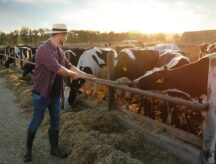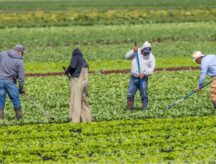Canada announces cap on applications for Agri-Food Pilot pathway to permanent residence
The Canadian federal government has announced a cap on the intake for permanent residence applications under the Agri-Food Pilot.
Discover if You Are Eligible for Canadian Immigration
Effective immediately, Immigration, Refugees and Citizenship Canada (IRCC) will accept only up to 1,010 applications for this program in 2025.
No further applications will be accepted after this cap has been reached, or after the pilot reaches its end date of May 14, 2025.
Prior to the announcement of this year's cap, IRCC limited applications to 2,750 per year.
About the Agri-Food Pilot
The Agri-Food Pilot is a pathway to permanent residence for non-seasonal workers in specific occupations in certain agriculture and food sectors.
Eligible sectors include the following:
- Meat product manufacturing;
- Greenhouse, nursery and floriculture production, including mushroom production; and
- Animal production, excluding aquaculture.
To be eligible, foreign nationals must meet requirements around
- A job offer;
- Education;
- Work experience;
- Language proficiency; and
- Settlement funds.
Over 4,500 agri-food workers and their family members have settled in Canada under this program since its launch in 2020.
Read our dedicated webpage to learn more about the requirements for this program.
Rationale for the cap
Unlike many Canadian immigration programs—which generally require an invitation to apply (ITA)—applications to the Agri-Food pilot are processed on a first-come, first-served basis. Any eligible foreign national can apply directly to IRCC for permanent residence under this program.
On account of high demand for the program, IRCC expects a larger number of eligible applicants in 2025 than provisioned for in its 2025-2027 Immigration Levels Plan.
About pilot programs
Immigration pilot programs are one form of pathway to Canadian permanent residence.
In contrast to permanent pathways, immigration pilots run for a maximum of five years, after which they expire.
Successful pilots can later lead to permanent immigration programs. The Atlantic Immigration Program (AIP), for example, was preceded by a successful pilot.
The Canadian federal government often establishes pilot programs to meet specific objectives. The Agri-Food pilot was created to help meet labour market needs of the agri-food sector.
- Do you need Canadian immigration assistance? Contact the Contact Cohen Immigration Law firm by completing our form
- Send us your feedback or your non-legal assistance questions by emailing us at media@canadavisa.com







